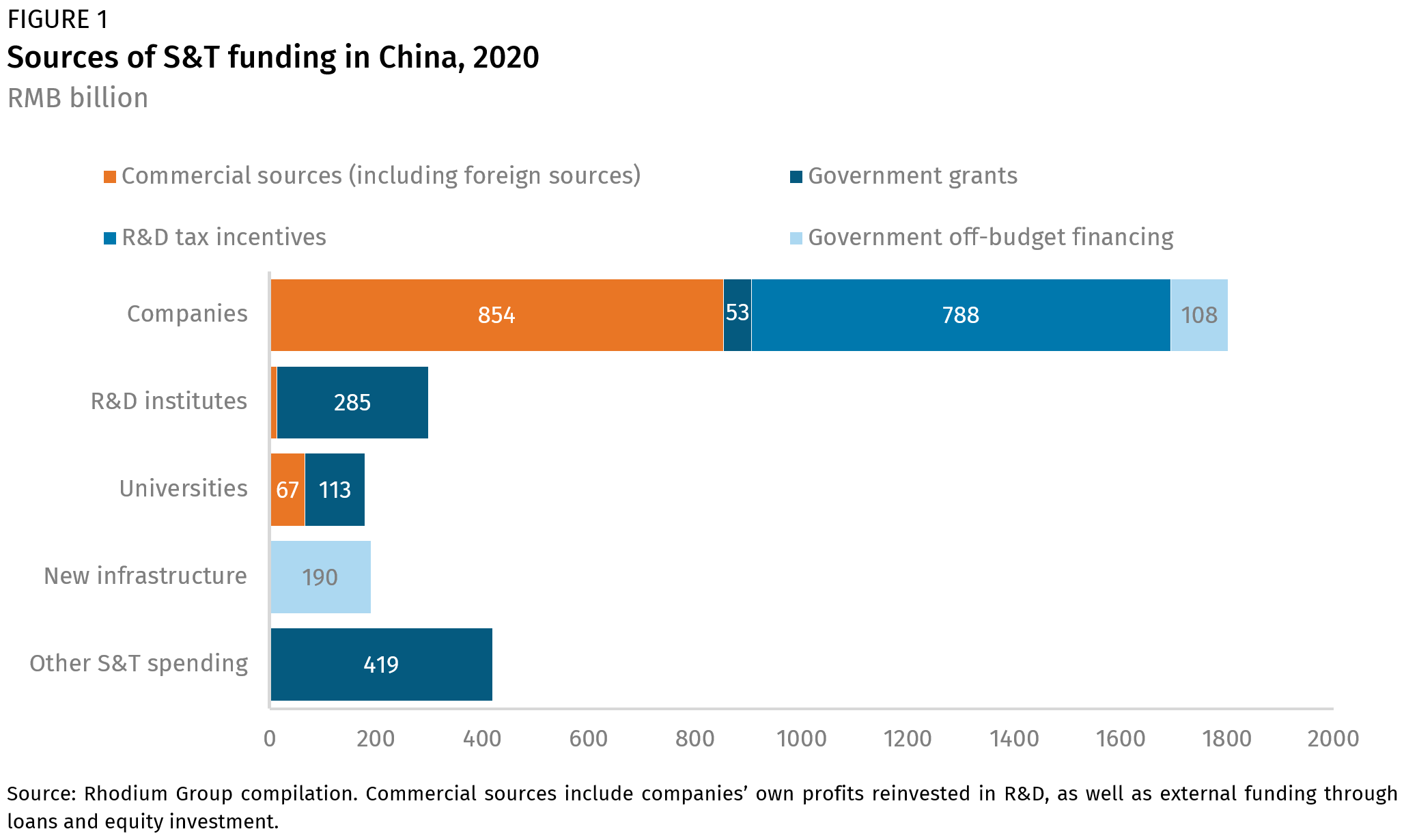
The Importance of Standards for the U.S. Bioeconomy & National Security: A Conversation with Congressman Jake Auchincloss
The U.S. bioeconomy, the sector of the economy that is touched by biology, is valued at ~$1 trillion and predicted to grow to over $30 trillion in the next two decades. With such enormous potential, ensuring the U.S. bioeconomy’s continued economic growth and global leadership has become a matter of importance for national security. Despite this massive potential, the U.S. bioeconomy, and specifically the biomanufacturing industry, is currently limited by the lack of standards in place for the sector.
The need for standards within the biomanufacturing sector has been discussed at length by experts, and the U.S. government has acknowledged and prioritized the establishment of standards by creating a National Standards Strategy for Critical and Emerging Technologies. Both the CHIPS & Science Act of 2022, and the Visions, Needs, and Proposed Actions for the Data for the Bioeconomy Initiative (2023), highlight the need for standardization as critical to the advancement of our domestic biomanufacturing sector. Furthermore, the National Security Commission on Emerging Biotechnology (NSCEB), a commission tasked with reviewing advancements in biotechnology and its nexus with national security, stated in their interim report the importance of creating standards for this sector as a matter of national security.
Most recently, The Select Committee on Strategic Competition between the United States and the Chinese Community Party (Select Committee on the CCP), held a hearing, “Growing Stakes: The Bioeconomy and American National Security”, that focused on the threats posed by adversaries in the industry. During the hearing, Congressman Jake Auchincloss (D-MA, 4th District), entered into the record a bipartisan letter that contained recommendations around developing and implementing standards for the bioeconomy that urged action from the National Institute of Standards and Technology (NIST).
To get a better understanding of how Congress and the Select Committee on the CCP view the need for standards for the bioeconomy, FAS interviewed Congressman Jake Auchincloss.
FAS: In your opinion, why does creating standards for biotechnology and biomanufacturing boost economic competitiveness and national security? What benefits does this pose for different regions across the nation?
Congressman Auchincloss: Standards are important in every industry to solve coordination and collective action problems, and the government plays a critical role in establishing them so that markets can work more effectively. Standards provide concrete benchmarks for individuals and companies within American industry, all of whom need a stable environment to make long-term investments. This sentiment is echoed in the National Security Commission on Emerging Biotechnology’s interim report which has noted that “biomanufacturing faces barriers to innovation because of…lack of standardization.”
With standardization, more time can be spent innovating, researching, and building instead of compensating for uncertainty due to a lack of definitions that carry the weight of the federal government. Establishing standards will only increase productivity. As I stated in the letter I entered into the record during the Select Committee on the CCP’s hearing around the bioeconomy, “standardization will help advance industrial biomanufacturing, create a more resilient and dynamic supply chain, and establish a durable, competitive U.S. bioeconomy. In turn, strengthening the U.S. bioeconomy will improve Americans’ well-being, promote well-paying jobs, and create a competitive and advantageous U.S. science and technology enterprise to achieve our national and societal goals.”
What is the role of international collaboration in creating standards for biotechnology and biomanufacturing in light of increased tensions with China?
International collaboration is critical to the success of biotechnology, but we must ensure we are working with reliable and responsible partners. For the U.S. to remain a leader in the bioeconomy, the U.S. must ensure its domestic standards become the international benchmark.
As we standardize the bioeconomy, we must also set standards for ethical intent and conduct. As such, there are some companies whose loyalty does not side with responsible science. We shouldn’t partner with companies like BGI, whose technologies have clear ties to the CCP’s repression and ongoing ethnic cleansing of its Uyghur communities. The increased tensions are a direct result of President Xi Jinping’s disregard for human rights, and excluding the CCP from projects that could be weaponized against their own people is the correct response.
Where does the U.S. bioeconomy stand in comparison with China or other countries?
China isn’t currently ahead but they are neck-and-neck with the U.S. because of the rate at which they are investing in their domestic bioeconomy. That’s already showing up in their patent and publication volume. The CCP’s R&D investment in biotechnology increased from $26 million USD in 1986 to $99 million USD in 2005. From 2008 to 2020, their investments increased to $3.8 billion USD. China’s spending on research and development overall climbed 10.3 percent to 2.44 trillion Chinese yuan ($378 billion USD) in 2020, according to the nation’s National Bureau of Statistics. Further, according to the health care information company IQVIA, China was the world’s second-largest national biopharmaceutical market in 2017, worth $122.6 billion USD.
The 117th Congress and Biden Administration edged science and technology funding upwards, but Republicans have proposed slashing federal R&D funding. We are moving in the wrong direction with this self-defeating approach. Congress must prioritize basic science: the curiosity-driven, peer-reviewed research that the private sector won’t fund and the public sector under-funds. We can start by expanding NIH funding and fully appropriating the $170 billion Science portion of the Chips and Science law that was authorized throughout the next ten years.
NIST has been directed to create standards and metrology for the U.S. bioeconomy through the FY24 appropriation bills, the FY25 Presidential Budget, the Bioeconomy EO, and from the letter that you submitted into the record during the hearing “Growing Stakes: The Bioeconomy & American Security.” Given all these priorities, what needs to happen in order for NIST to fulfill their directives for the bioeconomy?
There needs to be continued pressure applied to ensure NIST is prioritizing this important work. Congress can further support NIST by appropriating more funding for them to achieve the work laid out in front of them, as I have advocated during the current appropriations process.
The recent AI EO also directs NIST with many different tasks. Is the AI EO overtasking NIST and making bioeconomy related efforts an afterthought for them?
The AI EO can be implemented simultaneously with standardization efforts, if NIST is appropriately resourced. But those who think that AI is more important than biotech are wrong, and should not point NIST in that direction. Care should be taken not to duplicate work unnecessarily, but all of these tasks assigned to NIST will take time and labor. Again, NIST needs to be adequately funded to do all the work it is being asked to do.
In the letter, you suggest NIST collaborate with Manufacturing USA institutes, NIIMBL & BioMADE. However, in the Department of Commerce’s FY25 budget request, they ask for $37M for the Manufacturing USA program, the same amount that they have received since FY23. Should Congress prioritize and raise funding levels for programs like Manufacturing USA and why would this be important for ensuring a competitive edge for the U.S. bioeconomy?
Absolutely. Many federal R&D programs are continuously underfunded, even as they are tasked with more responsibilities. The programs we fund reflect our priorities. We need to be prioritizing science, technology, and centers of excellence for manufacturing to gain that competitive edge. Increasing funding would give these agencies and programs the resources they need to set standards and increase R&D. That’s why I sent a letter to the House Committee on Appropriations asking for a 10 percent increase above FY24 enacted funding levels for NIST, Manufacturing USA, and the Manufacturing Extension Partnership.
Lastly, in your opinion, what potential does the U.S. bioeconomy have that we are not capitalizing on and what would you like to see occur for the U.S. bioeconomy in the next year.
I would like to see standardization, or at least the beginning of standardization, within the next year. With standardization for industrial biomanufacturing in place, the U.S. bioeconomy will be able to reach new heights and enable our talented citizens to delve deeper into their research without being hindered by the lack of baseline definitions. Fully appropriating the $170 billion that was authorized for the Science portion of CHIPS and Science would be the step in the right direction to maintain U.S. innovation and competitiveness in biotechnology and biomanufacturing. Furthermore, we need state capacity and funding for R&D; which includes the staffing and programming for regulation and standardization and also the funding for peer-reviewed basic research. Finally, we need to expand the productive capacity of the bioeconomy through workforce development compacts that bring together employers, educators, and trade associations together; through skilled immigration pathways; and through technology-agnostic tax credits that are transferable for R&D and biomanufacturing. In the next year, I am working towards legislation that advances all of these different components to strengthen and secure the U.S. bioeconomy.
The Federation of American Scientists values diversity of thought and believes that a range of perspectives — informed by evidence — is essential for discourse on scientific and societal issues. Contributors allow us to foster a broader and more inclusive conversation. We encourage constructive discussion around the topics we care about.
In the quest for sustainable energy and materials, biomass emerges as a key player, bridging the gap between the energy sector and the burgeoning U.S. and regional bioeconomies.
Multiple bioeconomy-related programs were authorized through the bipartisan CHIPS & Science legislation but have yet to receive anywhere near their funding targets.
